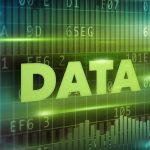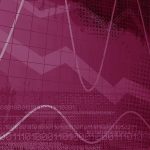The HIPAA is made to protect the private information of a patient. The law frowns upon on any health practitioner who tries to violate the laid down rules of HIPAA. Penalties and civil suits await anyone who violates it; however, most offenders do not commit this because of evil intent, but merely because of ignorance. This shows how serious how serious it is to violate the … [Read more...] about Healthcare and Big Data: HIPAA Violations and How to Prevent It
Big Data
Learn everything you need to know about big data. Find out how companies are using this revolutionary technology and what it means for your business strategy.
How To Turn Your Organization Into Making Data-Driven Decisions
Most organizations are now realizing the power of data and analytics. In the past decade, a few pioneering organizations have demonstrated how making strategic decisions based on data-derived facts can push businesses and innovation forward. It's not only anecdotal; evidence that making data based decisions makes business-sense is piling up. The McKinsey Global Institute has … [Read more...] about How To Turn Your Organization Into Making Data-Driven Decisions
The Reality Of Working With Data
There is much talk about the commercialization of Big Data. Many understand its benefits, but there is a lack of awareness on how it actually happens. Some organizations join the Big Data game with misconceptions that it is a simple, easy, and quick implementation and have no real strategy in place to derive value from the data. The truth is that there is a disconnect between … [Read more...] about The Reality Of Working With Data
[Talend Podcast] Big Data in 2020: Featuring Mark van Rijmenam of Datafloq
According to research firm IDC, the big data and business analytics market is predicted to hit $203 billion in the year 2020. Today, the creation and consumption of data continue to grow by leaps and bounds and with continued investment in big data analytics hardware, software, and services and in data scientists and their continuing education. However, technology, tools, … [Read more...] about [Talend Podcast] Big Data in 2020: Featuring Mark van Rijmenam of Datafloq
4 Surprising Discoveries From Big Data Insights
Big data is becoming increasingly important to business and will impact every business in the near future. At its core, big data collects information relevant to your business, examines trends and correlations, and makes decisions based on them. This analysis can be used to improve products based on customer experience and usage, tailor sales approaches to specific audiences or … [Read more...] about 4 Surprising Discoveries From Big Data Insights
What is big data?
Big data is a term that refers to the massive amount of digital data created and shared every day. Big data can transform how we live, work, and communicate. It can be used to improve everything from public health and urban planning to business and marketing.
Big data is also changing the way we think about privacy and security. The volume, velocity, and variety of big data present challenges and opportunities for organizations and individuals. Regardless, big data is here to stay, and its impact will only continue to grow in the years to come.
What is big data analytics?
Big data analytics is the process of turning large, complex data sets into actionable insights. Businesses use various analytical tools and techniques, including machine learning and statistical analysis, to do this.
Big data analytics can be used to improve decision-making in areas like marketing, operations, and customer service. It can also be used to identify new business opportunities and optimize existing processes. With the help of big data analysis, businesses can gain a competitive edge by using their data better.
Want to learn more about big data? Datafloq has courses available. Contact us to get started.
When was big data introduced?
The term big data was coined in the 1990s, with some giving credit to John Mashey for popularizing the term. However, the concept of big data has been around for much longer.
Where does big data come from?
In the early days of computing, scientists and businesses began to realize that the amount of data being generated was increasing exponentially. As a result, they began to develop new methods for storing and processing data.
Over time, these methods have become increasingly sophisticated and have played a key role in enabling businesses to make sense of vast amounts of information. Today, big data is used in various industries, from retail to healthcare, and its importance is only likely to grow in the years to come.
What are examples of big data?
One of the most common examples of big data is social media data. With over 2 billion active users, Facebook generates a huge amount of data every day. This includes information on user interactions, posts, and even location data. Analyzing this data can help companies better understand their customers and target their marketing efforts.
Another example of big data is GPS signals. These signals are constantly being generated by devices like cell phones and fitness trackers. When combined with other data sets, GPS signals can be used to provide insights into everything from traffic patterns to human behavior. Finally, weather patterns are another type of big data set. By tracking these patterns over time, scientists can better understand the impact of climate change and develop strategies for mitigating its effects.
How do companies use big data?
Companies use big data in marketing, product development, and customer service. By analyzing large data sets, businesses can identify patterns and trends that would be otherwise difficult to spot. For example, a company might use big data to track customer behavior patterns to improve its marketing efforts.
Alternatively, a company might use big data to improve its products by identifying areas where customers are most likely to experience problems. For instance, big data can be used to improve customer service by finding pain points in the customer journey. Ultimately, big data provides companies with a valuable tool for gaining insights into their business operations.






